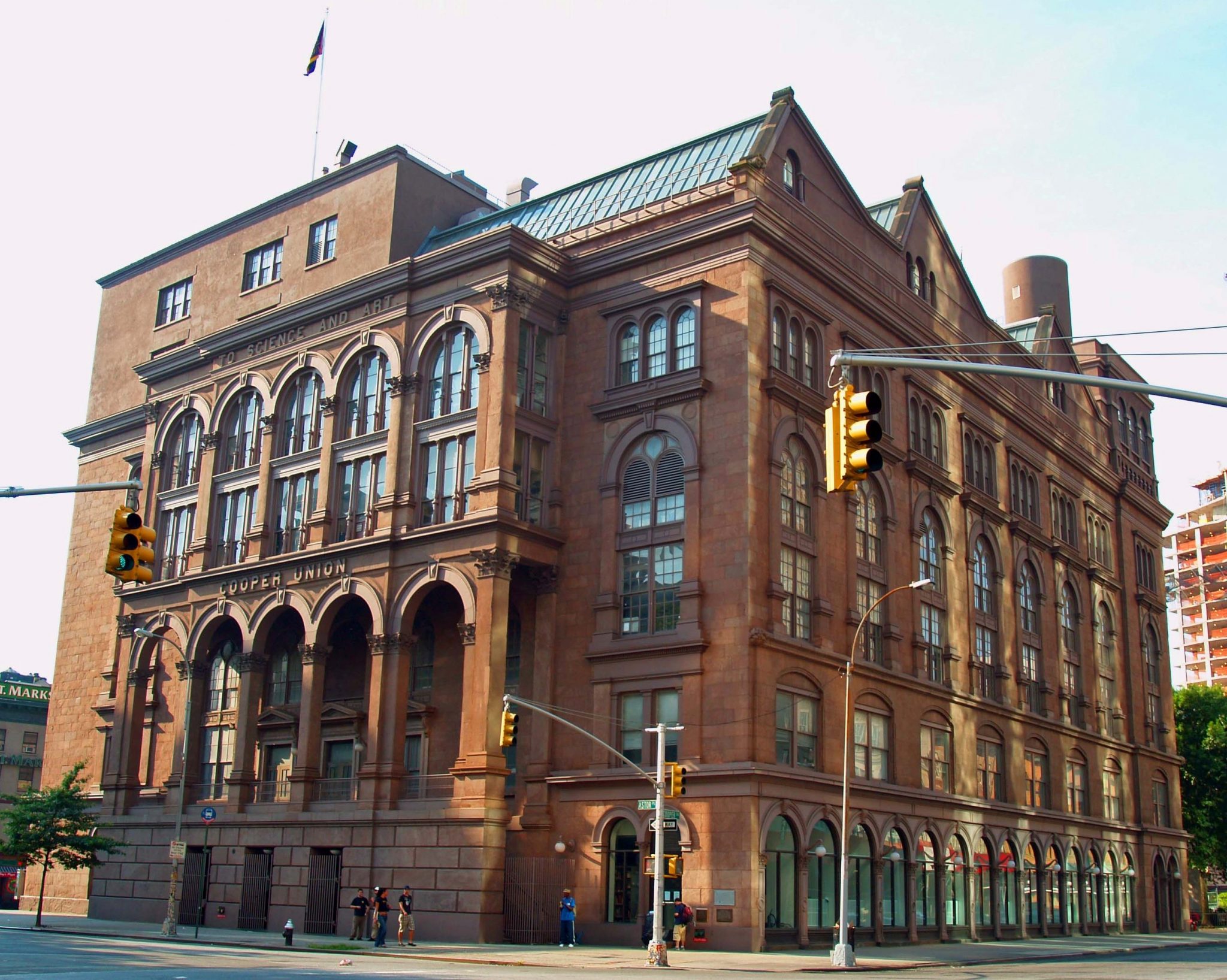In 1860, a young Illinois senator with presidential ambitions spoke in the Great Hall of the Cooper Union in downtown Manhattan. His name was Abraham Lincoln. One hundred forty- eight years later, a man holding the same position and hopes spoke in the same room. His name is Barack Obama. While it is unclear if he would be president today if not for Lincoln, one surely can’t discount the values embodied by Peter Cooper, who endowed the school that hosted these speeches.
A man of humble origins from upstate New York, Cooper parlayed a fortune earned rendering glue from carcasses into an empire with interests in iron smelting, railroads and Manhattan real estate. He devoted his wealth to social justice.
Cooper Union, which he founded in 1859, was freely open to working people, women and African Americans at a time when their access to education was restricted. Today the institution offers undergraduate degrees in engineering, art and architecture, and provides full scholarships to all students. Merit is the sole criterion for admission and quality the sole arbiter of its programmes. Cooper Union may be said, then, to represent unbridled entrepreneurship in the service of inclusion, equality and wisdom, a combination colloquially known as American exceptionalism.
That relationship is now unravelling. For reasons ranging from recession and ill-advised capital expenditures to a lack of philanthropic support, the school has operated in deficit for decades. To close the gap, its president, Jamshed Bharucha, has proposed new, revenue-generating programmes: ‘There is enormous untapped potential’ in Cooper’s academic resources, he told The Wall Street Journal a year ago.
That potential is money, but in monetising its curriculum, Cooper risks subverting teaching for the sake of commerce and betraying the ideals on which it was founded. What Cooper has to sell is not education to students but the values it represents to potential donors, a nuance seemingly lost on the trustees and administrators who allowed the school to reach its current financial duress.
A similar blindness marks debates over what kind of government Americans can afford today. Lack of money determines which programmes will be cut and which initiatives left unfunded, when it should be the values we wish policy to effect – a more equitable distribution of income and access to education for those who cannot afford its spiralling costs, say – dictating our budget and tax policies. In other words, money today is greater than ethics or culture or the legacy come down from Abraham Lincoln – born in a log cabin–to a man who, in Lincoln’s time, would likely have been born a slave.
This article was first published in the May 2013 issue.
